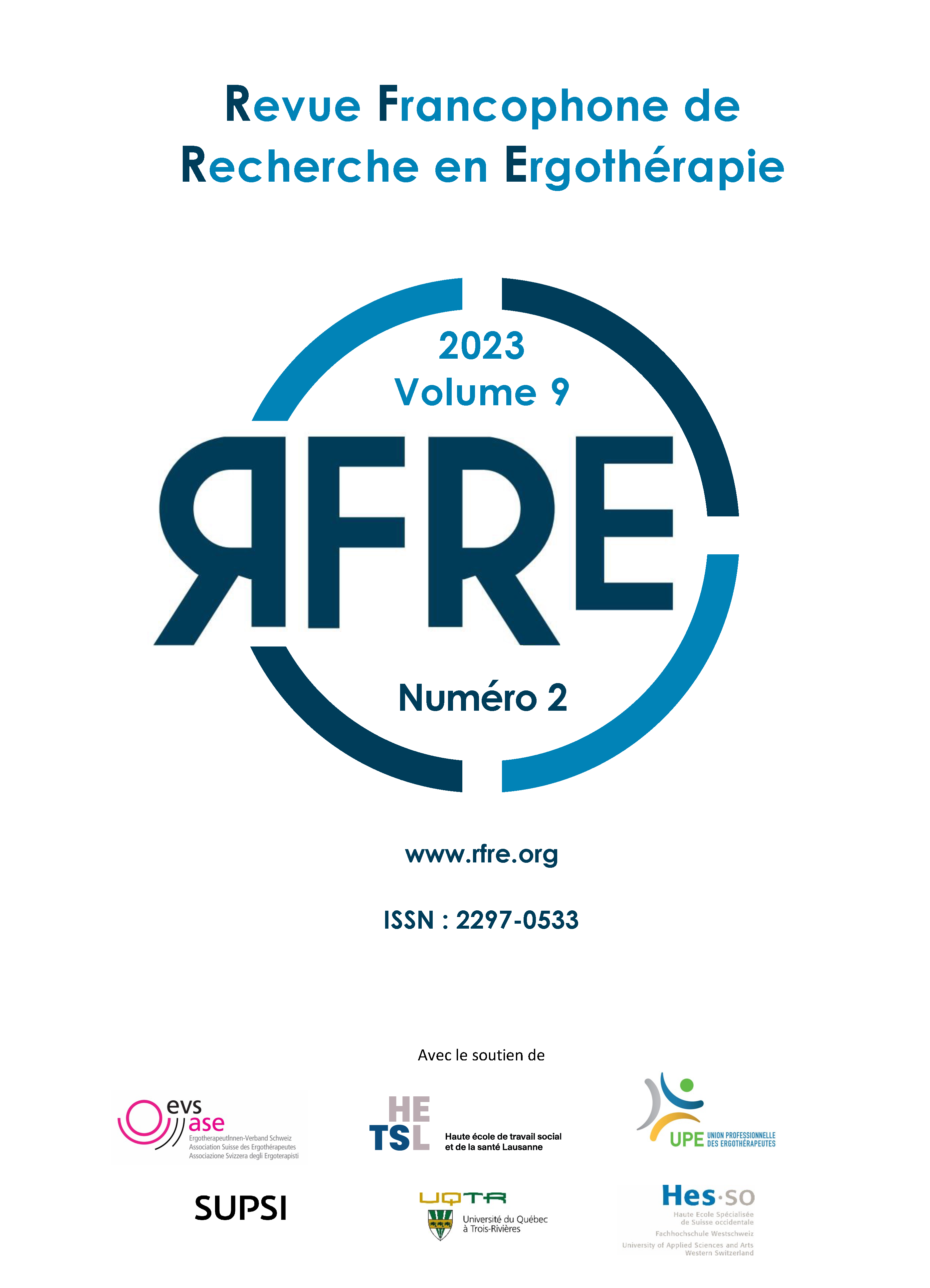Occupational injustices experienced by trans people: Cross-perceptions of trans people and occupational therapists in Quebec-Canada
DOI:
https://doi.org/10.13096/rfre.v9n2.242Abstract
It is increasingly discussed in Canada and other countries that trans people experience
social injustices that affect their daily lives (Abramovich et al., 2020; Davidson, 2015;
Espineira and Thomas, 2022; Hana et al., 2021), including their journey through various
health systems (Wall et al., 2023; Zeeman et al., 2019). Nonetheless, few studies have
focused on the impact of these injustices on their occupations and the occupational
injustices experienced on a daily basis from the perspective of trans people (Dowers et
al. 2019; Mc Carthy et al., 2020; Swenson et al., 2022). The purpose of this research was
to explore the occupational injustices experienced by trans people in their daily lives,
including those encountered in the Quebec healthcare system. To this end, four trans
people and eight occupational therapists (most of whom had personal or professional
experience with trans people) took part in the study in order to triangulate experiential,
professional and theoretical knowledge. Individual semi-structured interviews using a
photo-elicitation approach (Clark-Ibàñez, 2004) were conducted with trans people and
two focus groups were conducted with occupational therapists. The results reveal that
trans people experience deprivation, alienation and occupational imbalances. These
inequities affect five types of occupations: 1) occupations based on binary norms; 2)
occupations performed in uncomfortable or hostile environments; 3) occupations
influenced by minority stress; 4) occupations related to restricted access to care; and 5)
occupations performed in excess to support gender-sensitive care. The results of this study
are generally consistent with the literature, but for the first time specifically document the
occupational injustices experienced by trans people. As well, it highlights that occupational
and social injustices are intimately related and both stem from cisgenderism. Occupational
therapists who wish to improve their practice with trans people will benefit from
understanding these injustices in order to better combat them and avoid perpetuating them.
Downloads
Published
How to Cite
Issue
Section
License
Copyright (c) 2024 Mélodie Nicole, Marie-Josée Drolet

This work is licensed under a Creative Commons Attribution-NonCommercial-ShareAlike 4.0 International License.












